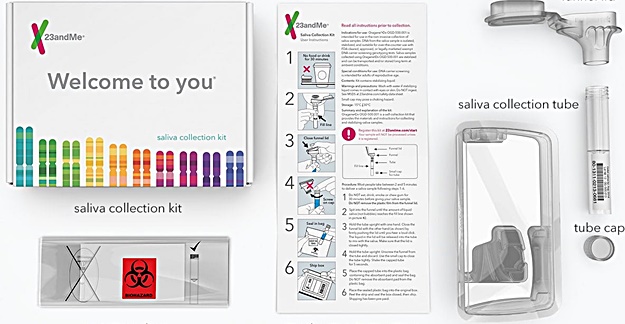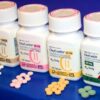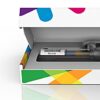What could be negative about an at-home test that can determine if you are at elevated risk for developing several types of cancer? It turns out, plenty.
If you could take a test and have it determine whether you are at an elevated risk for developing breast cancer, who wouldn’t want to know such valuable information? And what if you could do it in the comfort of your home, without a prescription? That’s the crux behind 23andMe’s at-home genetic test, which the FDA just approved yesterday.
While at first glance the test seems like a real breakthrough and a new tool in the fight against cancer, the reality is that its impact will likely be more muted. And even worse, it could give some people a false sense of security and others a cause to worry for no good reason.
One of the test’s biggest appeals is that it is easy. Spit in a small tube, then send it back to 23andMe, which will examine the saliva for variants in 2 genes, BRCA1 and BRCA2. The presence of those variants is associated with a significantly higher risk of breast and ovarian cancer in women, and breast and prostate cancer in men, according to the company.
Before you go to 23andMe’s website to order a test, there are a few things you should know. The variants that are associated with the higher risk of cancers are most common in those of Ashkenazi Jewish descent. So if you are not an Ashkenazi Jew, there’s little reason for you to have the test done. Second, it only tests for 3 mutations that may cause cancer, even though there are far more, a point not lost on the FDA.
“The test only detects three out of more than 1,000 known BRCA mutations,” the agency said in a news release. This means a negative result does not rule out the possibility that an individual carries other BRCA mutations that increase breast cancer risk.”
A larger problem I see with this kind of test is that it eliminates the role of a physician to properly interpret the results and provide guidance for the patient. Many who have the test done and find they don’t have the mutations may get a false sense of security that they won’t get breast or ovarian cancer. On the other hand, those who find they do have the mutations may needlessly worry – having the mutation does not guarantee you will get cancer.
While the decision to have any genetic test is up to the individual, this new at-home variety brings with it a host of caveats. A test can tell you a lot of things, but not everything, which is why it’s best to meet with a doctor when it comes to any serious health issues.







